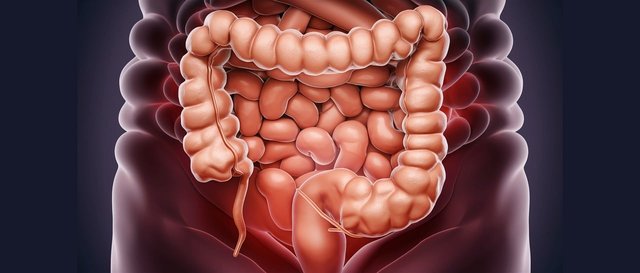Many people are suffering from colon cancer now. Project Coordinator of Gonoshasthaya Community Based Cancer Hospital and President of Bangladesh Cancer Foundation Professor Dr. Habibullah Talukder Raskin said about this.
What is colon cancer?
Dr. Habibullah Talukder said, the last part of the digestive system in the human body is called colon or large intestine. Cancer that starts here is called colon cancer. After the stomach, the relatively narrow small intestine begins. And after the small intestine is the large intestine.
The large intestine has several parts. For example, ascending, transverse, descending and sigmoid colon. The next part of the colon is the rectum or rectum. Colon and rectal cancer are collectively called colorectal cancer. As in other parts of the body, the colon can develop benign tumors that have not spread elsewhere. Where the primary tumors remain large, they are not cancerous.
Polyps can result from overgrowth of cells lining the lining of the colon. Polyps are benign and not cancerous. However, over time, some polyps can turn into cancer. Doctors therefore insist on regular screening, i.e. diagnosing cancer before symptoms appear. As a result, polyps can be found and surgically removed before they become cancerous.
Causes of Colon Cancer:
Dr. Habibullah Talukder said, healthy normal cells grow in the human body in an orderly manner, so that the normal processes of the body continue. But when the cell's DNA is damaged, the cell continues to divide even when it is not needed. The tumor originates from the excess cells accumulated in this way. If malignant or cancerous, the cancer cells gradually attack the surrounding healthy cells, spread to the lymph nodes, mix with the blood stream and settle in distant organs.
Who is at greater risk?
Colon cancer can occur at any age. However, the risk of colon cancer is higher in older people, especially those over 50 years of age.
Colon cancer may develop in the future if colon cancer is present or non-cancerous polyps appear.
The risk is higher if there is a family history of colon cancer, i.e. a blood relative with colon cancer. The risk increases if more than one family member is affected.
Chronic inflammatory diseases of the colon such as Crohn's disease, ulcerative colitis increase the risk of colon cancer.
Colon cancer can be passed from one generation to the next in some unusual gene mutations.
Eating a diet low in fiber and high in fat can lead to colon cancer. Many studies have found such evidence. But there are different opinions.
Those who are not physically active are at higher risk.
The risk of colon cancer increases if radiation therapy has been used to treat cancer in any part of the abdomen in the past.
Diabetes, obesity, alcohol and smoking can be risk factors for colon cancer.
Symptoms of Colon Cancer:
Chronic changes in bowel habits may occur. Diarrhea, constipation or changes in stool consistency may occur.
Blood may pass in the anus or with the stool.
A bowel movement may feel incomplete.
Abdominal discomfort, stomach ache, belching or acidity like feeling.
Weakness and lethargy may occur.
Weight loss can occur without any reason.
Many people with colon cancer may not experience any early symptoms. The degree of symptoms may vary due to differences in the location and size of the disease in the colon.
Colon Cancer Treatment:**
Dr. Habibullah Talukder said, colon cancer is mainly treated with surgery and drugs or chemotherapy. Surgery is the first choice in the treatment of colon cancer, if the location, type and extent of the disease are all early stage.
Medicines or chemotherapy are often required before or after surgery. In addition to chemotherapy, drug treatment includes targeted therapy and immunotherapy.
Chemotherapy drugs destroy cancer cells. In the treatment of advanced cancer, surgery is often simplified by first shrinking the cancer with drugs. Chemotherapy is used to destroy the remaining or hidden cancer cells after surgery.
Radiation therapy has no role in the treatment of colon cancer. However, surgery and chemotherapy along with radiation therapy play an important role in the treatment of rectal cancer.
Prevention of colon cancer:
Colon cancer prevention requires lifestyle changes. Fruits and vegetables rich in fiber, vitamins, minerals and antioxidants should be eaten, grains should be eaten more. Alcohol and smoking should be avoided. Regular exercise and walking should be practiced. Weight should be controlled.
Screening is very important in preventing colon cancer. Diagnosis should be made before symptoms appear. Screening should start around age 50. But those who are at risk of cancer should start screening earlier.
There are some medications that can reduce the risk of colon cancer. However, as there is disagreement about its effectiveness and application, those medicines should not be taken without a doctor's advice.
